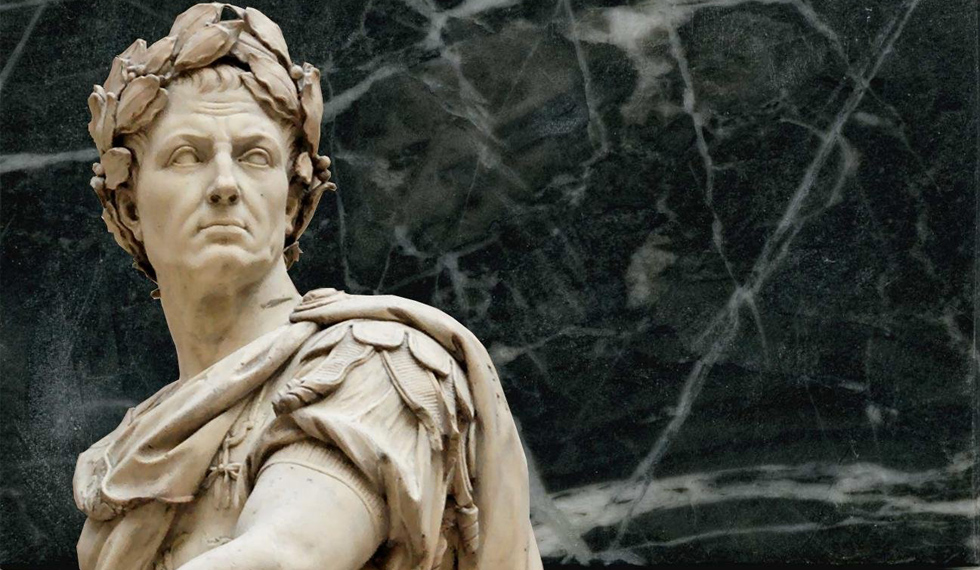
While crossing to Rhodes, after the winter season had already begun, he was taken by pirates near the island of Pharmacussa and remained in their custody for nearly forty days in a state of intense vexation, attended only by a single physician and two body-servants 2 for he had sent off his travelling companions and the rest of his attendants at the outset, to raise money for his ransom. On the acquittal of Dolabella Caesar determined to withdraw to Rhodes, to escape from the ill-will which he had incurred, and at the same time to rest and have leisure to study under Apollonius Molo, the most eminent teacher of oratory of that time. But he did not make common cause with Lepidus, although he was offered highly favourable terms, through lack of confidence both in that leader's capacity and in the outlook, which he found less promising than he had expected.Ĥ 1 Then, after the civil disturbance had been quieted, he brought a charge of extortion against Cornelius Dolabella, an ex-consul who had been 3ģ 1 He served too under Servilius Isauricus in Cilicia, but only for a short time for learning of the death of Sulla, and at the same time hoping to profit by a counter revolution which Marcus Lepidus was setting on foot, he hurriedly returned to Rome.

During the rest of the campaign he enjoyed a better reputation, and at the storming of Mytilene Thermus awarded him the civic crown. Being sent by Thermus to Bithynia, to fetch a fleet, he dawdled so long at the court of Nicomedes that he was suspected of improper relations with the king and he lent colour to this scandal by going back to Bithynia a few days after his return, with the alleged purpose of collecting a debt for a freedman, one of his dependents. P5 held out against the most devoted and eminent men of his party who interceded for Caesar, and they obstinately persisted, he at last gave way and cried, either by divine inspiration or a shrewd forecast: "Have your way and take him only bear in mind that the man you are so eager to save will one day deal the death blow to the cause of the aristocracy, which you have joined with me in upholding for in this Caesar there is more than one Marius."Ģ 1 He served his first campaign in Asia on the personal staff of Marcus Thermus, governor of the province. 3 Everyone knows that when Sulla had long But at last, through the good offices of the Vestal virgins and of his near kinsmen, Mamercus Aemilius and Aurelius Cotta, he obtained forgiveness. He was accordingly forced to go into hiding, and though suffering from a severe attack of quartan ague, to change from one covert to another almost every night, and save himself from Sulla's detectives by bribes. 2 Therefore besides being punished by the loss of his priesthood, a his wife's dowry, and his family inheritances, Caesar was held to be one of the opposite party. In the next consulate, having previously been nominated priest of Jupiter, 2 he broke his engagement with Cossutia, a lady of only equestrian rank, but very wealthy, who had been betrothed to him before he assumed the gown of manhood, and married Cornelia, daughter of that Cinna who was four times consul, by whom he afterwards had a daughter Julia and the dictator Sulla could by no means force him to put away his wife. Regardless, there are elements that shine with Shakespeare's beautiful words, and there are other elements that fall flat.1 1 In the course of his sixteenth year 1 he lost his father. Director Mankiewicz is faithful, perhaps too faithful, to the original, though adapting the play may have been a damned if you do, damned if you don't type situation. I disliked Louis Calhern as Caesar as he didn't have the right bearing or presence. Watch it primarily for those, because the rest of the film, while erudite and worth watching, just doesn't translate as well. And I have to say, the scenes with Brando right after the assassination are compelling (the one in private ending with him raging "Cry 'Havoc!'", and of course the address to the crowd), even if he slips on a word or two. On paper, this should be an extraordinary film.

In this movie, you have the world's greatest playwright (Shakespeare) combined with one of the world's greatest actors (Brando), two other fantastic talents (Mason and Gielgud), and a compelling historical tale (the assassination of Julius Caesar and resulting civil war).


 0 kommentar(er)
0 kommentar(er)
